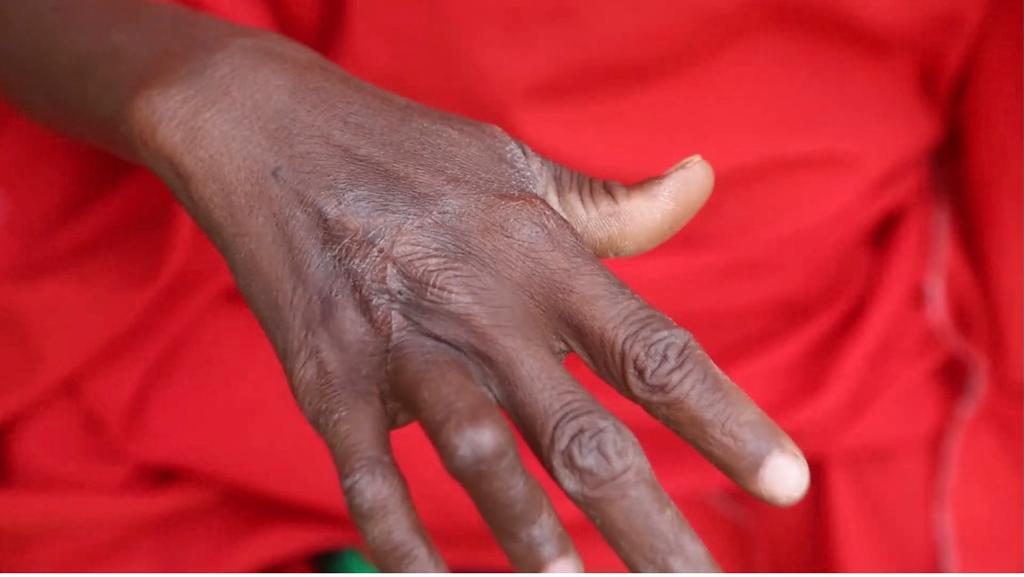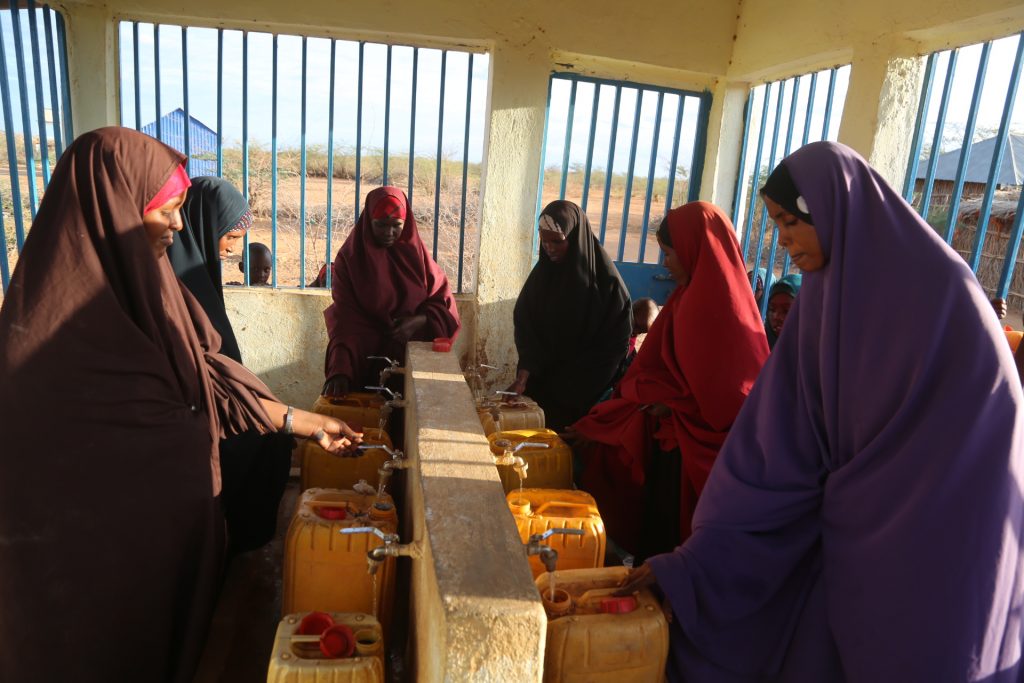13km East of Burdhuubo District, Gedo Region, Somalia lies Suriyo Village. The village is also located 5km from the Jubba river. For many years, women and girls in this village have walked daily under the scorching sun, to and from the Jubba River to gain access to the village’s only source of water. The blazing sun was not the only obstacle they faced as they collected water from the river. The distance to the river and dark paths and bushes were insecure, especially for the women and girls who were often targets of sexual or physical harassment. Additionally, the river is home to numerous crocodiles that are a great risk to those collecting water along the river banks.
Quresha Mohammed, 40, and a mother of 10 is one of the many persons who have survived a crocodile attack at the banks of the river Jubba. Although she survived the attack, the scars from that day are still very visible and serve as a constant reminder of how dangerous it is to fetch water along the Jubba river.


Together with other women in the village, they would wake up at dawn and set out for the long journey to the river daily. Mama Quresha recalls that her biggest worry every morning was how she would get water for her household needs. Despite knowing that getting water from the river was dangerous, she still went out to the river and found a way to get the water even though it was never enough for her household’s needs or safe enough for drinking and cooking. Mama Quresha also recalls how her children often suffered from watery diarrhoea due to drinking contaminated and poorly handled water.
“The 10kms daily journey was very tiresome, even though it was a routine I had religiously followed together with many other women for nearly thirty years,” said Mama Quresha.
The long-awaited relief for Suriyo Village residents came when Nomadic Assistance for Peace and Development (NAPAD), with funding from the Somali Humanitarian Fund (SHF), established water supply infrastructure that is now providing them with clean, safe, and affordable water near their homesteads.

The water supply infrastructure established includes the construction of the Suriyo shallow well, the construction of two water kiosks with eight taps each, installation of 3.5km of pipework from the shallow well to the water kiosks, the construction of a 20,000 litre elevated storage water tank and the installation of a hybrid solar water pumping system which is operationally, financially, and environmentally sustainable.


It has been a few months since Suriyo village residents started having access to clean, safe and affordable water. Over 450 households living in Suriyo village and many others from the surrounding villages are benefitting from the water supply infrastructure established. Several households in the village have connected water pipes from the water kiosks to their homes, allowing them to fetch water from the comfort of their own homes.
“I no longer walk to the water kiosk to fetch water even though it is less than 500 meters away because I have connected water pipes to my home to make my work easier,” said Mama Quresha

NAPAD also trained a water management committee and the solar power operators who are residents of the village and who oversee operations, maintenance, and management of the project’s infrastructure for the long-term benefit of the community members.
“We appreciate NAPAD and SHF for establishing this life-changing project in our village. For sure it’s an asset for us and the generations to come,’’ appreciates Quresha Mohamed
